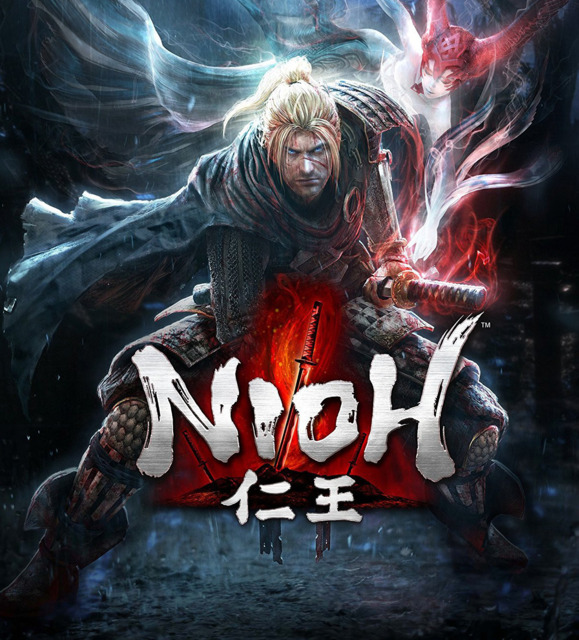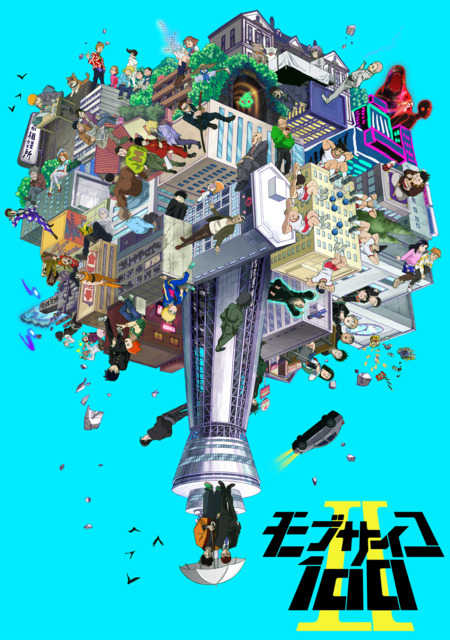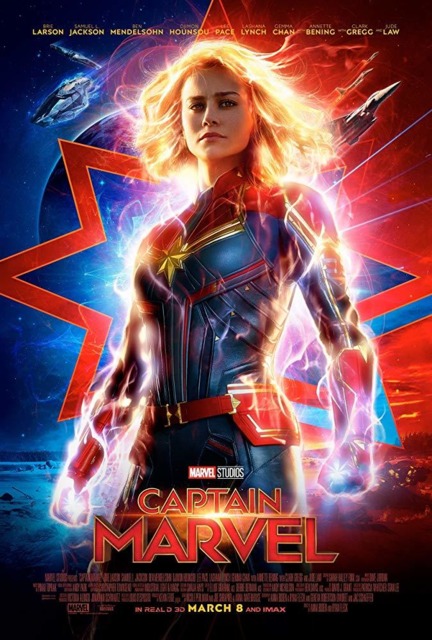Saturday Summaries 2019-03-16: Pokepaparazziversary Edition
By Mento 2 Comments
There comes a time every year when the winter snows have melted and the arrival of spring draws nigh that a young man's fancy turns to but one thing alone: the imminent 20th anniversary of Pokémon Snap. Now, I've already missed a lot of 20th birthdays this year - Super Smash Bros. (Jan 21st), Silent Hill (Jan 31st), my sister's, Final Fantasy VIII (Feb 11th), and EverQuest (March 16th, though I'm sure @marino's got that covered) - but Pokémon Snap and its continued lack of a sequel or gyroscopic-enhanced remake is a sore spot for many.
Pokémon's never been shy about exploring other avenues for its menagerie of colorful monsters: there's been the many generations of traditional RPGs and the anime everyone knows about, but also pinball games, block-stacking puzzle games, match-3 puzzle games, TCGs, roguelikes, mini-game collections, brawlers, racers, fighters, picross, Sengoku strategy sims, art tools, investigative crime adventures, and at least one game where you try to give commands to an attention-deficit Pikachu who cares nought for what any human has to tell them, especially if they have a slight accent. Yet the most natural of all of them was a game that treated Pokémon as they truly are: animals, possessed of the same autonomy, dignity and self-sufficiency as any beast, albeit with a whole bunch of supernatural powers and occasional sapience-tier intellects to make their lives more interesting.
Pokémon Snap has always felt like a game that was perfectly fine as it was, but could also benefit from several generations' worth of technological advancements. The idea of making their habitats look more elaborate and lived-in, their movements and actions devoid of human commands more natural, and the amount of photography tech at the player's fingertips - including perhaps aerial drone footage and a moderately in-depth editing suite - could turn a potential Pokémon Snap sequel into a cross-genre hit. A version of Pokémon Go where the plan is to capture Pokémon at the perfect angle and light with your phone cameras, rather than throwing Pokéballs at them all day? Sign me up. It's less of a draw for me as a stick-in-the-Muk Poképurist, but you also have several hundred more Pokémon you could put in these biomes and watch them interact with their various natural predators, prey, and symbiotic allies.
I recognize it's a pipe dream, or rather a possibility that is out of the hands of myself or any other fan of 20-year old N64 games they can't let go, but of all the Pokémon games that could exist, it's perhaps the only one I'd really be psyched about. Ah well, there could always be something in the next Pokémon-focused Nintendo Direct once those Gen 8 Sword/Shield games are out.
Into the Breach
The Indie Game of the Week was Into the Breach, a very well-regarded (and with good reason!) turn-based, grid-based strategy game with a very particular run-based model where a single playthrough, win or lose, is likely to only take a few hours, unless you spend several more paralysed with indecision after being presented with some manner of Morton's fork. I might've been a little harsh on the game in my review, since I sorta knew going in that I didn't want to play any more games of a "roguelike" nature (even if this game isn't really one - we could use a broader definition of short duration games with some degree of persistence), but I did appreciate how clever and intricate its systems were and how it took a simple premise - protect buildings from big bugs - and gradually layered on more complexity (mechs, weapons, enemy types, environmental hazards, bonus objectives) at a rate that a player could acclimatize to. Worth poking my nose into, however briefly.
Link here: Indie Game of the Week 111: Into the Breach
Sega Mega Drive
I meant to put the Mega Drive away and start something new this week but the intended blog feature requires a little more tweaking before I am happy with it, so instead I hopped back in time to the '90s once again to put together a list of developers that have been featured so far on Mega Archive. A game console is nothing without its third-party support: there's only so much the original manufacturers can put out in a year, and the different styles and perspectives other companies can contribute with their games are integral to establishing a system's versatile appeal. I'm also fascinated with the history behind a lot of these companies: some were well-known giants from the same arcade background as Sega like Namco, Taito, Capcom, or Tengen (Atari); others like Atlus, Wolf Team, and Masaya came into their own in the Japanese home computer market, and were only starting to become known quantities to westerners around this time due to their cautious early console forays; and many others still are tiny obscure contract developers brought on by major publishers for porting grunt work, their names all but lost to time. With the capriciousness of the video game industry, and how companies close and open on a regular basis and the resulting heartache and optimism that respectively result, it's an aspect of the industry I've become more intrigued by of late. It helps that there's a resource curated by those of a similar mind: the GDRI, or Game Developers Research Institute, which scours the world wide web for game credits, interviews, and defunct developer homepages to craft a better and fuller picture of what the '80s, '90s, and '00s game development scene was like.
Link here: The Sega Mega Drive's Mega Drivers (list)
Nioh

Still working my way across 17th century Japan as William "Anjin" Adams: part pirate, part samurai, part yokai slayer, and all white savior. Imagine The Last Samurai except instead of taking on the Imperial Army at the end in an honorable but doomed assault, Tom Cruise just kicks one of those tanooki in its enormous ballsack instead. Jokes aside, I continue being way into what Nioh's putting out there: a Souls-ian combat engine and attention to lore and atmosphere, with a looter RPG sensibility with its requisite side-questing and crafting. It's a combination that works remarkably well, even if it has resulted in a game that could take the better part of creation to circumnavigate in full.
I think Nioh might be the game to have finally won me over as far as stance-switching is concerned. Whenever I hear that a game requires you adjust your stance for a better fight outcome, I inwardly wince: it's the manual gear-switching of combat, something that always punishes you if you forget to change to the preferred setting, in the process creating an unnecessary extra step when all you want is to focus on the road ahead and what's coming towards you. Instead, Nioh's stances aren't quite as absolutely essential as they've felt in other games, but at the same time do confer significant advantages depending on the opponent. When I talked about stances last time, I reductively deduced it was simply a matter of fast and weak (low), slow and potent (high), and an all-round neutral (mid). Turns out there's more to it than that: not only does every weapon have a quick and strong attack, but the stance also changes the direction and shape of the combos that result. I've been maining the two swords approach for a while now - when in low stance, you effectively become a Cuisinart slashing at blinding speed with little stamina cost (called ki in this game) that's amazing for quickly dispatching weaker/smaller foes. When used against a human opponent or larger, they're better at blocking it or shrugging it off long enough to smack you in the face. Then you have to consider the samurai skills you can purchase; techniques and combo finishers which are frequently stance-specific. The way the game does this is by having a few skill trigger commands - a common one is using a strong attack while guarding, which is what the game's universal parry move is binded to, but can also be any number of weapon-specific techniques like a whirling storm of blades for the dual-swords - and then has the player assign their preferred skills to those commands. You end up with a customizable weapon system that doesn't give you dozens of fighter game style commands to memorize, but a few techniques that can be adjusted on the fly for whatever you're up against. An enormous boss who will blow through your defenses with each hit can't exactly be parried, but a big showy attack when fired off at the right moment of vulnerability can come in handy.
If anything, Nioh's all about preparation. In that regard it perhaps has more in common with The Witcher games (even the protagonists look alike) than Souls; you're not just equipping healing items in one quick slot and the "warp home" artifact in another, but working out ahead of time what's going to be best suited for the next boss. Souls had a lot of that too, not to betray too much how inefficiently I made my way through those games, where you'd learn that a boss is weak to a certain element or status effect (or which elements/statuses it's likely to use on you) and carry the right items into the battle with you. Yet with Nioh there's so many extra steps you can take: your ninjitsu and onmyo (magic) provides you with a small number of renewable consumables each time you rest, which means you can carry items you need into failed boss fight after failed boss fight without necessarily exhausting your supply if the boss proves too obstinate about dying like a good little yokai. The aforementioned techniques can be swapped out for the right boss, experimenting with stances until you have the ideal arrangement. I was trying to fight the game's second boss (a flying demon lady called a Hino-enma; apparently a big roadblock for many new Nioh players) with the default mid-stance because I was determined I wasn't going to worry about stances, and discovering that I could barely land a hit on her before she flew out of the way or slashed my throat out in the split moment post-swing when I was open; instead, switching to low stance meant I could dash in, land several hits, and quickly evade out of reach of her swift retribution. Nioh can afford to be as difficult as it is because it gives you a world of options to consider; as long as you don't fall into the Impatient Gamer trap of eschewing half of it to brute force the next opponent, it becomes surprisingly fair. At any rate, I can appreciate when a game shows me the tough love I need to shape up, and now I feel a lot more confident with the game's challenges even if, like with the recent Umi-bozu fight, I still end up eating dirt 9 times out of 10.
Mob Psycho 100 (Season 2)

I was going to wait until the season had ended before jumping in, but I heard the current season of Mob Psycho 100 was wrapping up next week and figured I could stretch my viewing of it enough that its final episode would land before I was done. Instead, I binged the entire thing in two days because I loved it so much. I saw the first season early last year as part of my push to watch more TV, anime, and movies - something I've relaxed on a little in 2019, chiefly because I've already blown through most of the "to watch" list I let build up - and found it to exhibit the similar strengths of One (the mangaka)'s thematically similar One Punch Man: what seems on paper like a dull superhero parody where the overpowered hero anticlimactically wins with almost zero effort every time is actually entertaining as hell in spite of it, focusing on the comedy and drama of the people involved and the pretentious foolishness of villainy. Mob Psycho 100 S1 literally ends with one of the show's only "grown-ups" - Mob's master Arataka Reigen, a fortune-telling con-man that takes advantage of Mob's genuine psychic ability while also proving to be a reliably level-headed and empathetic mentor for same - dressing down a secret cabal of bad psychics while he was temporarily invincible, forcing them all to confront how childish they were being about taking over the world with their powers.
Mob Psycho 100 S2 spends a lot more time focusing on that side of the show's equation. Mob learned long ago not to rely on his psychic powers as his be-all and end-all solution to life's problems, and has been diligently working out as part of his school's goofy but earnestly supportive Body Improvement Club in order to win over his childhood crush the honest way: through athletic and academic prowess. With the exception of an arc involving a powerful TV psychic that turned evil and dead (in that order), coming back as a vengeful spirit like comic relief ghost Dimple but several magnitudes stronger, most of season 2 has been spent developing Mob, his relationship to his friends, his relationship to his master Reigen, his unyielding sense of morality, and his continued quiet pursuit of Tsubomi-chan: the perhaps-not-so-oblivious object of his affections. However, the show finally got serious and dramatic with its final episodes, as the rest of the aforementioned shadowy cabal stages its big assault on Japan and its government. That also means it suddenly got very cliffhanger-happy, and I'm still at least one episode away from seeing how it all pans out to my own well-deserved irritation.
Also, the new opening theme is catchy as all hell, perhaps more so than season 1's. I can never bring myself to skip it.
Captain Marvel (2019)

Keeping up with the Marvel Cinematic Universe is almost a full-time job these days, but with Avengers: Endgame on the horizon and a lot of buzz around the first female-led MCU movie I felt compelled to check out Captain Marvel. The short review is that I enjoyed it, but that it otherwise felt like every other MCU origin story: I'm getting a little bored of the formula of these things, where it always ends with the hero reaching deep for their true heroism and saving the day with an elaborate CGI fireworks display. Brie Larson's fine in the role - she sort of supplants the character's personality with her own outspoken attitude, but since Downey Jr. did the same thing with Tony Stark it's hardly something I could criticize given how it made Iron Man a strong enough foundation to build this entire 20+ movie enterprise upon - and I liked the supporting roles from a convincingly de-aged Samuel Jackson as a circa-1995 Nick Fury, Ben Mendelsohn's laid-back Skrull commander Talos, and Jude Law's patient mentor Yon-Rogg. I also liked how the MCU's cosmic stage is shaping up, establishing more about how the MCU's versions of the Kree and Skrull operate and lending more context to the Guardians of the Galaxy's run-ins with the former and their likely presence in the next Avengers movie, as the remaining human Avengers seek help in their final battle against Thanos.
Without hopefully sounding too dismissive of those fighting the good social justice fight, Captain Marvel felt a little heavy-handed in that regard. Black Panther, which made a huge push for the representation of their featured race, did so via a much smarter and more natural process; it worked to sell the notion of Wakanda and its culture and customs, and how an African-American outsider like Killmonger might resent and want to manipulate his way into becoming its leader due to a perceived lack of solidarity with their suffering kin around the world. Captain Marvel very much wanted this movie to empower the audience of young women watching it in a similar manner - and I hope it does, because those shots of Larson signing autographs for little Captain Marvel cosplayers are delightful - but it could've easily done so just by existing, confident in its portrayal of Carol Danvers as an insuppressible air force vet who overcomes a lot of bullshit caused by the male egos standing in her way. That it then had to make all that super apparent for those sitting in the back row with awkward musical cues like No Doubt's "Just a Girl" over a fight scene felt like it was betraying the relatively more subtle character work seen more recently elsewhere in the franchise for the sake of its (entirely correct) message. I'll admit that some of this fatigue is due to all the right-wing/MRA nonsense surrounding the movie also, which was hardly the movie's fault and proved to be completely ineffective in curtailing its box office success (as did their campaign to force Disney to permanently separate James Gunn from his beloved Guardians of the Galaxy franchise over some old edgelord tweets; it's been a good week for laughing at the failures of shitty dudes with shitty agendas).
Danvers is still the badass female superhero lead the MCU needed, but right now it's hard to take her as seriously as the nuanced Gamora or Black Widow, both of whom are shown to have more than their fair share of flaws and hang-ups to work out in between the regular ass-beating sessions. It might simply be a matter of time; no MCU superhero was a fully fleshed-out personality until after their origin story was out of the way and they could bounce off the others in their orbit in different movies. I'm looking forward to seeing more of Captain Marvel in Endgame, and the directions Larson and her directors will take what will no doubt be one of Marvel's bigger names in their future movie plans.
